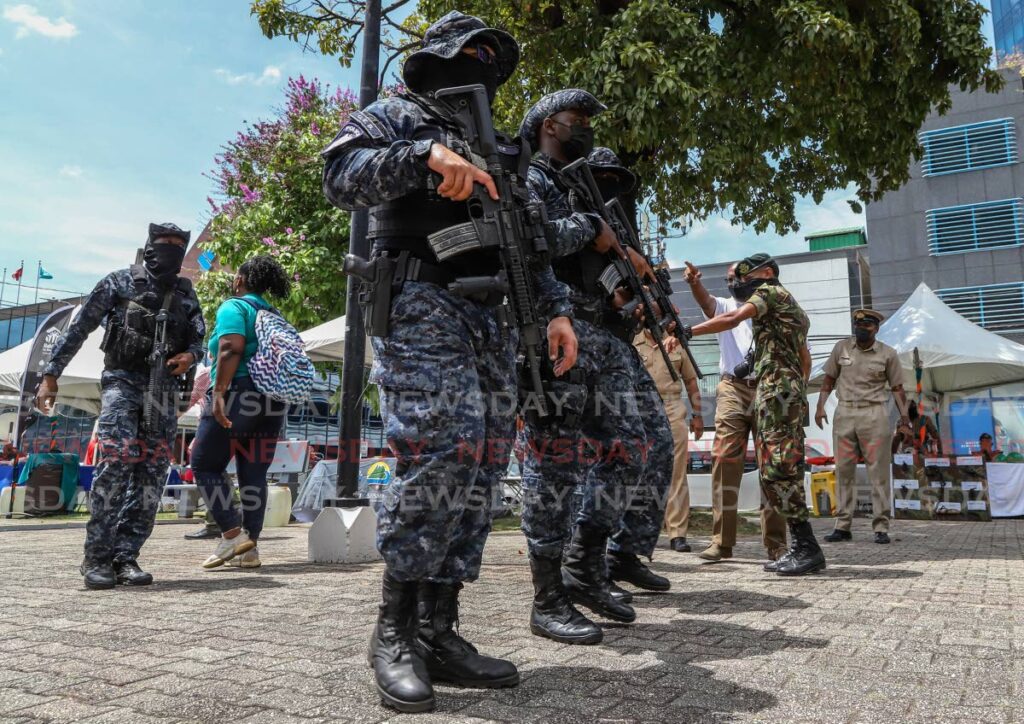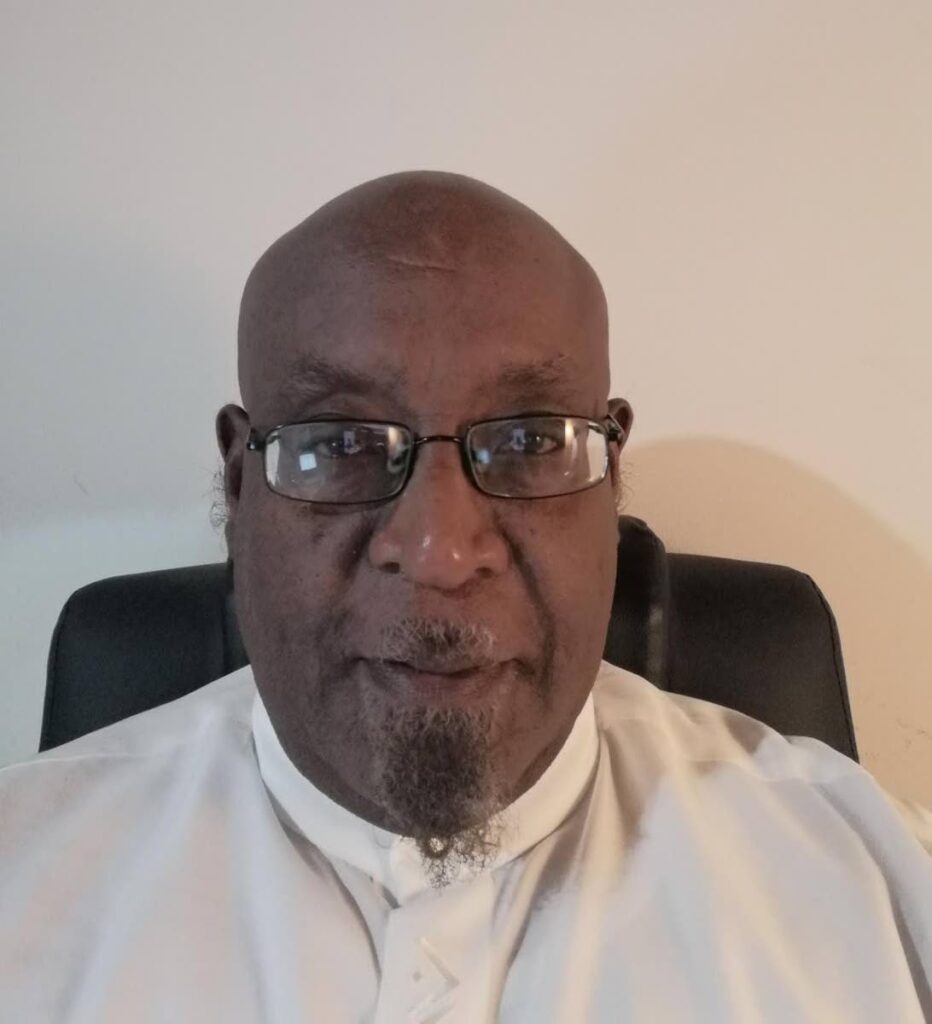Why crime has got out of control

BILAAL ABDULLAH
At the recent screening of the Police Service’s Code 727 documentary about the events of July 27, 1990, there was an attempt to blame our current crime crisis on those tragic events 32 years ago. This defies logic and is clearly intended to deflect blame for the continued, decades-long failure to provide public safety to the citizens of our beloved country.
Our protective services are some of the best equipped in the world, yet still TT consistently ranks in the top ten with regard to murder rate. Clearly we need to re-think our approach to solving the problem of runaway criminal violence.
A problem that is not understood cannot be solved.
Shortly after 1986 our country began to be a transshipment point for cocaine and swiftly became the number one transit point for cocaine moving from South America to the US and Europe, according to the Drug Enforcement Administration (DEA) and other international agencies. Local and international law enforcement bodies never cease to remind us that cocaine shipments are normally accompanied by arms shipments…cocaine and guns go together.
Despite the fact that this international drug traffic requires huge sums of US dollars which cannot be found in our ghettos and therefore the spotlight should reasonably be on more affluent circles, yet we have never seen the true drug kingpins arrested and successfully prosecuted.
Also, in case the police service and others are not aware, the US policy of deporting criminals has had the, perhaps unintended, effect of seeding our gangs with a “professional” class of US-trained criminals. Most gang leaders have long sought out these deportees as shooters (Or as they are now called, hammer men). This phenomenon is well known to those who live in the hotspot areas.
Among other factors contributing to our crime problem is the longstanding practice of permitting the URP programme to become a source of funding for organised criminal enterprise and allowing the award of certain classes of state contracts to become subjected to criminal intimidation. All of the above as well as other factors including collusion between a few corrupt policemen and criminal elements have turbo-charged our crime scene.
In their defence, the efforts of the police have been hamstrung by a failure to update our legislation regarding the use of video and photographic evidence. Having prosecutions highly dependent on eyewitness testimony has allowed criminals to frustrate justice by targeting state witnesses. The excessive time taken to conclude criminal cases also means that we lack the deterrent of swift justice.
We have had gang violence in Trinidad for many decades and in the 60s the element of marijuana sales was added with a gradual increase in the use of firearms to protect the illicit trade, particularly when Colombian ganja started to enter the country. Once we became a key hub in the international cocaine trade, the flow of weapons increased dramatically and has never ceased since.
It should be noted that the insurgents represented a broad spectrum of our society, from those of the most humble of origins to others who went to school with or had previously socialised with several of the then MPs. Some even had parents who shared the same social circles as our first two prime ministers. Indeed, it would have been difficult to find even a “cuss case” on the record of the vast majority of those involved.
In assessing any situation it is wise to reserve judgement until you have considered all the contributing factors.
Perhaps those who are so concerned with preserving our democracy should have expressed outrage at the abuse of government power when citizens were wrongfully accused of illegally occupying the lands at Mucurapo. Perhaps they should have been outraged and declared that the government should not have ordered the police and army to occupy the premises on April 21, 1990 without a court order of any kind. Perhaps they should have reprimanded the senior police officer in charge on that day, who when asked to produce a legal authority for the occupation declared “We are here under badness and allyuh could do what allyuh want.”

Perhaps they should have disciplined the soldiers who used to take pleasure in standing next to the primary-school classrooms and racking the slides on their rifles thereby reducing the children to tearful nervous wrecks. Or they should have clamoured for justice a few years earlier when Abdul Kareem Marcelle, a exemplary young black man, a university graduate who was completing his masters and who lived with his wife and children with her parents in Federation Park, was stabbed to death by an off-duty police officer minutes after he was arrested for loitering in St. James at 10 pm while eating a roti on the sidewalk.
The state paid damages to his family for his wrongful death but no one was charged for his slaying…his innocent blood mattered not at all to our genteel classes. Incidentally, his killing was just one in a long line of actions by some police officers unjustly profiling and taking often deadly action against young black men…the problem persists today and limits the effectiveness of law enforcement.
Maybe they should have censured those who ordered soldiers to torture some of the detainees at Macqueripe on the night of August 1, 1990, stripping them naked, generally brutalising them, breaking one person’s leg, shooting another in his head and carrying out mock executions on several others. All so that the authorities could seize all the copies of the amnesty document, then lie and claim there had been an unconditional surrender with no amnesty.
There is more than enough blame to go around regarding what led to July 27, 1990 and what transpired during those fateful six days. We would be foolish not to learn the correct lessons from those events and instead use them to continue to stoke divisions and animosity.
Those responsible for our national security should diligently do their jobs with the necessary integrity, empathy and intelligence rather than looking for scapegoats to explain the longstanding epic failure to get a grip on the awful crime situation…and if they are to succeed they need the support of the wider society.
It would also be helpful if civil society were to lobby the government to ban the gangster-lyrics music that celebrates murder and mayhem and which has become ever more explicit in the glorification of extreme violence over the years.
If we really want to solve our runaway crime problem then maybe those who are more richly blessed among us should exert themselves to help elevate the lot of the less fortunate in our society. Maybe we should stop trying to treat some groups as sub-humans or non-persons and realize that everyone deserves to have their human dignity respected. The police should realise that their job is to protect and serve Laventille with the same commitment with which they protect and serve Westmoorings…after all, their salaries are paid by all of our citizens, and Massa Day Done a long time ago.
Our nation should reflect on the fact that the area of East Port of Spain that many wish to wall off or wipe out as a crime hotspot gave us outstanding people like Dr Eric Williams, Sir Ellis Clarke, Chief Justice Clinton Bernard, John Donaldson Senior and Junior, Dr Cuthbert Joseph, Glenda Morean, Isabel Teshea, Frank Barsotti, Morris Marshall, John Jeremie, Isidore and Anthony Smart, Gerald Yetming, Cyril and Lawrence Duprey, Kwame Ture (Stokely Carmichael), Makandal Daaga and many others too numerous to mention, as well as giving the nation steelband, kaiso and making many other contributions to the tapestry of our national culture.
TT has the potential to be the best country in the world if we would truly put aside the things that divide us and work together in a clear-eyed manner to make the words of our anthem true...“Here every creed and race find an equal place and may God bless our nation.”
In closing, we would do well to remember the quiet heroism of Canon Knolly Clarke, who risked his life by going to the Red House, not once but twice, to help resolve the crisis. We all could learn from the selfless love that he displayed for his country and fellow man in responding to the call to help negotiate an end to the impasse.
May the souls of those who died over those fateful days in 1990 rest in peace. May God grant solace to the hearts of their loved ones, forgive the sins and shortcomings of all those who were involved on both sides of that distant conflict and heal our nation’s divisions.
Bilaal Abdullah, as a senior member of the Jamaat al Muslimeen, led insurgents during the 1990 attempted coup to storm the Red House and kept then prime minister ANR Robinson, members of his Cabinet, members of the Opposition, Parliament staff, police officers and others captive for six days.

Comments
"Why crime has got out of control"